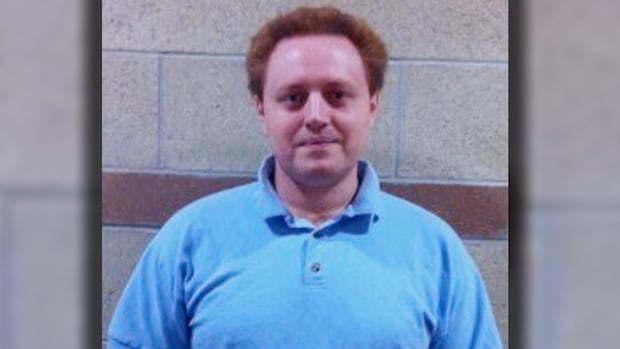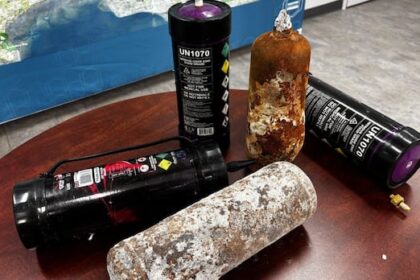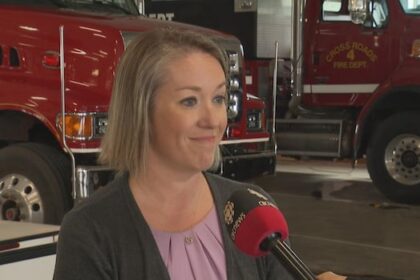ManitobaThe man in charge of the mental health facility where Trevor Farley is being held says he’s been taking a conservative approach to dealing with his “high-risk” designation. Trevor Farley, who killed his parents during psychotic episode in 2021, has asked judge to lift designationArturo Chang · CBC News · Posted: Nov 04, 2025 9:43 PM EST | Last Updated: 4 hours agoListen to this articleEstimated 4 minutesTrevor Farley was found not criminally responsible in the deaths of his mother and father, and in the attempted murder of his former nursing supervisor at Seven Oaks Hospital in October 2021. (Submitted)The man in charge of the mental health facility where Trevor Farley is being held he’s been taking a conservative approach to dealing with Farley’s “high-risk” designation.Farley, then 39, was designated a high-risk accused after he was found not criminally responsible for the killing of his parents and the stabbing of his former supervisor during a psychotic episode in October 2021.That designation allows him to be conditionally or absolutely discharged only if approved by a superior court judge. The label is rare, and Farley’s is the first in Manitoba. The designation has come back to Justice Ken Champagne at Manitoba Court of King’s Bench, who is hearing arguments this week on whether the designation should be revoked. During a court hearing Tuesday, James Wasio — forensic director at the Selkirk Mental Health Centre, where Farley is being held — said restrictions bar Farley from getting passes to access community programs and government services, or to see his family outside hospital.Farley has had a bed in the highest-security area of the centre since December 2023. He is allowed out to the hospital’s recreation room on occasion to use the gym under supervision, Wasio said.But Wasio told Crown prosecutor Rustyn Ullrich the high-risk accused designation would not prevent Farley from being granted further privileges at the facility, up to the point of getting a pass to go into the community unsupervised.Wasio said the hospital currently does not allow patients to leave the highest-security area for a less-secured, but still locked, area in the hospital until they get an unsupervised pass of some kind. The hospital could make accommodations to allow Farley to get to that level, he said.Behaviour concernsHe also discussed reports from staff about Farley’s behaviour at the facility, noting that among other things, Farley had encouraged patients not to take medication, and that there may have been some requests from staff who worked with him to shift their assignments.Wasio said staff reported Farley had once said he was a good patient because he was “normal” and that his was a “cruel case.”Lawyer Carley Mahoney, representing Farley, questioned the lack of documentation on the incidents Wasio raised.She also said staff would have also been aware that Farley had stabbed a nurse, and that was one of the concerns they had raised with the management team.Mahoney also pressed Wasio on whether Farley was escorted into the gym in shackles and handcuffs. Wasio denied that was currently the case.”I think that’s one of the orders that perhaps was suggested, but I don’t recall the last time Mr. Farley attended the rec hall in shackles,” he said. “It would not be the norm … but I wouldn’t say it would be applicable to individuals in our care.”Farley presenting ‘rosier picture’: prosecutorErin Brown, a community forensic mental health specialist, testified that she assessed Farley for two separate reports, and he had presented himself as calm and respectful.The prosecutor questioned how Farley had portrayed prospects for reconciliation with his wife and returning to nursing after his possible discharge.”He seems to be painting a much rosier picture of what’s actually reality,” said Ullrich.Brown agreed that having a realistic point of view would be important for a conditional or absolute discharge.”For future plans for Mr. Farley, is it fair to say that it’s early on for Mr. Farley at this stage?” Ullrich asked her.”We haven’t discussed it, because that was not an option because of the high-risk accused designation,” she said. Brown said she doesn’t know whether changing the designation would result in a drastic change to Farley’s progress.The hearing, which began Monday, is scheduled to continue until Friday.ABOUT THE AUTHORArturo Chang is a reporter with CBC Manitoba. Before that, he worked for CBC P.E.I. and BNN Bloomberg. You can reach him at arturo.chang@cbc.ca.
Thursday, 5 Feb 2026
Canada – The Illusion
Search
Have an existing account?
Sign In
© 2022 Foxiz News Network. Ruby Design Company. All Rights Reserved.
You May also Like
- More News:
- history
- Standing Bear Network
- John Gonzalez
- ᐊᔭᐦᑊ ayahp — It happened
- Creation
- Beneath the Water
- Olympic gold medal
- Jim Thorpe
- type O blood
- the bringer of life
- Raven
- Wás’agi
- NoiseCat
- 'Sugarcane'
- The rivers still sing
- ᑲᓂᐸᐏᐟ ᒪᐢᑿ
- ᐅᑳᐤ okâw — We remember
- ᐊᓂᓈᐯᐃᐧᐣ aninâpêwin — Truth
- This is what it means to be human.
- Nokoma











